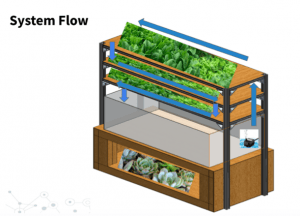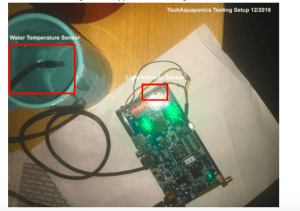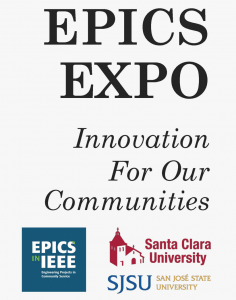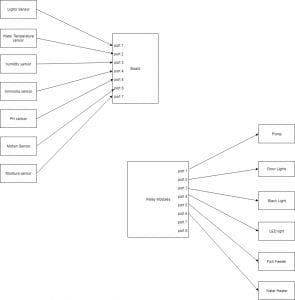We presented a design process update to the Bio Lab Studio Staff at the Tech museum in San Jose, CA on February 7th 2019 for final design approval. Tech Museum Presentation

Image1: Approved design for SMART aquaponics system
Sustaining life
In order to sustain life on the system the team will be installing grow lights to help plants grow. The water tank on the middle of the system will hold a mixture of Glofish and Sucker fish.
 Image2: Glofish and Suckerfish
Image2: Glofish and Suckerfish
IoT sensors and interactive exhibition
One of the most important aspects of this project is to demonstrate, through collected data, that it is possible to grow plants through a self-sustaining system. Furthermore, our exhibition must show the general audience of the Tech technical data in an interactive and intuitive manner, to accomplish this task the team leverages the Kijanigrows microcontroller to upload and display the current state of the aquaponics system in real time. The image below shows the average light and temperature collected over a span of 2 days.

Image3: Web application showing recorded data.
https://api.kijanigrows.com/app/#/trends/TechAquaponics/

Image4: Kijanigrows Microcontroller used to collect and upload data









